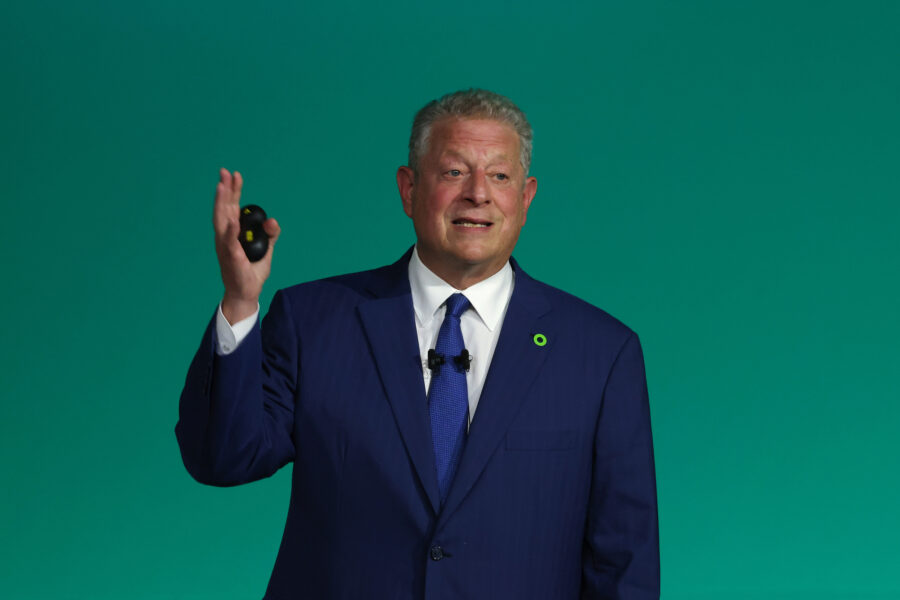A New York state judge ordered ExxonMobil on Wednesday to quickly turn over some of the documents sought by the state attorney general’s office, which is investigating whether the oil giant misled investors about the risks posed by climate change.
But Justice Barry R. Ostrager allowed the company to withhold one batch of the financial records, saying Exxon could instead respond to questions from the attorney general’s investigators about their contents.
Exxon agreed to turn over other records that it had provided to the U.S. Securities and Exchange Commission, which earlier this month ended its own investigation into the company’s climate accounting practices without taking action.
The mixed instructions came at a hearing in New York Supreme Court in Manhattan, where Ostrager began by urging prosecutors to quickly wrap up their investigation and decide whether to press charges against Exxon or move on.
“This cannot go on interminably,” he said. The company has provided millions of pages of documents and answered questions over some three years of investigation, Ostrager said. “It’s not my place to tell you when an investigation ends, but it is my place to put an end date on the requests for information and the filing of a complaint.”
Manisha M. Sheth, New York’s executive deputy attorney general for economic justice, responded that her office is in the final phases of the investigation. She said the office already had found “smoking guns” showing that Exxon had misled investors, but that it needed access to a list of internal spreadsheets.
Ostrager said Exxon must provide some of the spreadsheets within 30 days, and must answer prosecutors’ interrogatories—a set of questions about the remaining documents—within 35 days. Exxon had told the prosecutors that some of the data was readily available but that it would be burdensome to produce it all.
Calculating Climate Risk: What Exxon Told Investors
At the heart of the dispute are business records that the attorney general’s office said would show how Exxon calculated the financial impact of future climate regulations on its business.
Attorney General Barbara Underwood’s office wants Exxon to turn over cash flow spreadsheets that would reflect how the company incorporates proxy costs—a way of projecting the expected future costs of greenhouse gas emissions from regulations or carbon taxes—into its business planning.
Last year, the attorney general’s office filed documents accusing Exxon of using two sets of numbers for those proxy costs. The result, it said, was that Exxon misstated the risks and potential rewards of its energy projects.
“Exxon has repeatedly assured investors that it is taking active steps to protect the company’s value from the risk that climate change regulation poses to its business,” Underwood’s office wrote in a 30-page motion filed with the court in June.
Exxon has maintained that its use of different costs was not deceptive and was consistent with the company’s public statements. In one case, the company has said, it used an actual carbon tax enacted in Alberta, Canada, rather than the higher figures in its corporate proxy costs.
“We didn’t tell people we use $60 a ton or $40 a ton, we said we use costs where appropriate,” said Daniel J. Toal, a lawyer representing the company at the hearing on Wednesday. He said the degree to which the company complied with its own internal policies had no bearing on the investigation.
Judge Pressures Both Sides to Wrap It Up
Michael Gerrard, director of Columbia University’s Sabin Center for Climate Change Law, said after nearly three years of sparring in court it’s a practical matter for the judge to look for the finish line.
“The pressure is on both sides,” he said, adding that while Ostrager is urging investigators to end their work, he’s also requiring Exxon to provide additional documents and answers within a month to move the case along.
New York investigators, under the direction of then-Attorney General Eric Schneiderman, hit Exxon with the first subpoena in 2015. A second subpoena was issued in 2017. The two parties have been battling ever since, through filings and in hearings, about which documents specifically have to be produced. The Massachusetts Attorney General’s Office has a similar investigation underway.
On Wednesday, Ostrager left no doubt that he wants the New York investigation to conclude shortly, either by prosecutors bringing charges or dropping the case. “If you choose to bring a formal complaint,” he told the state’s lawyers, “this is going to be a 2019 trial.”















